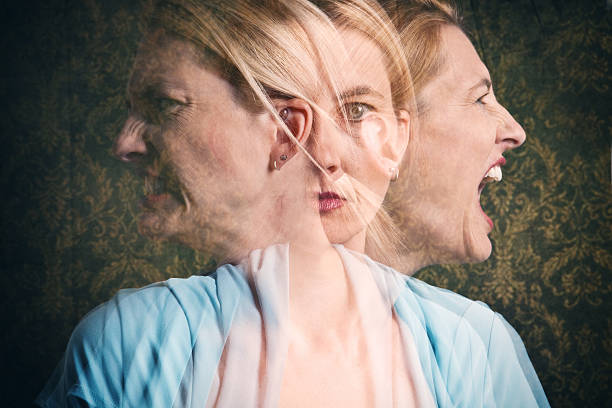Dealing with a loved one who’s caught in the tangled web of bipolar disorder and substance abuse can be an emotionally draining and challenging journey. It’s like trying to navigate through a turbulent storm, where the waves of bipolar disorder and the undertow of drug addiction threaten to capsize the boat. In this blog, we’ll delve into how to support someone facing the dual battle of bipolar disorder and substance abuse. Along the way, we’ll touch upon key aspects like bipolar depression meds, bipolar disorder and alcohol, treatment drugs, and the varying symptoms of bipolar disorder in both females and males.

Understanding the Challenge
Bipolar disorder, often characterized by extreme mood swings, can make someone more susceptible to turning to drugs or alcohol as a means of coping with their emotional turmoil. The bipolar depression meds that are prescribed to manage this disorder can help stabilize moods but may not completely eliminate the risk of substance abuse.
The Connection Between Bipolar Disorder and Alcohol
It’s crucial to acknowledge the strong link between bipolar disorder and alcohol. Many individuals with this condition turn to alcohol in an attempt to self-medicate, hoping it will ease the rollercoaster of their emotions. This is a dangerous path to tread, as alcohol can exacerbate the symptoms of bipolar disorder and lead to a vicious cycle of dependence.
Balancing Bipolar Disorder Medications
For those diagnosed with bipolar disorder, medications are often prescribed to help manage their condition. These bipolar disorder treatment drugs, including mood stabilizers and antidepressants, can be vital in stabilizing the intense mood swings associated with the disorder. However, when paired with substance abuse, there’s the risk of dangerous interactions and decreased effectiveness. It’s important for patients to communicate openly with their healthcare providers about their substance abuse issues to find the right balance.
Unique Symptoms in Females
Bipolar disorder can manifest differently in females compared to males. Bipolar disorder symptoms in females are more frequent and severe depressive episodes. Understanding these gender-specific differences is crucial for both the person struggling with the disorder and their support network. Recognizing the symptoms and their intensity can facilitate early intervention. In contrast, bipolar symptoms in men may often exhibit more aggressive and irritable behaviors during manic episodes. It’s vital to be aware of these gender-specific symptoms to provide the right kind of support.
Approaching the Dual Challenge
Dealing with a bipolar drug addict is a complex endeavor that requires patience, empathy, and understanding. It’s important to remember that your loved one is fighting two battles simultaneously. Empathize with their struggles and remember that it’s not a choice they’ve made willingly. The grip of addiction and the turmoil of bipolar disorder are formidable adversaries.
Seek Professional Help
First and foremost, seeking professional help is crucial. Bipolar disorder and substance abuse are both medical conditions that require expert treatment. It’s essential to connect your loved one with a mental health professional who specializes in dual diagnosis and substance abuse treatment. They can develop a tailored treatment plan that addresses both issues simultaneously.
Open and Honest Communication
Communication is the cornerstone of any successful relationship. Engage in open and honest conversations with your loved one, allowing them to express their feelings and concerns. Listen actively and without judgment. By fostering a safe space for them to share their thoughts, you’re creating a foundation for trust and understanding.
Encourage Treatment Adherence
Support your loved one in sticking to their prescribed bipolar depression meds and treatment drugs. This can be a challenging task, as substance abuse can interfere with medication compliance. Offer reminders and gentle encouragement to ensure they follow their treatment plan.
Build a Support Network
You don’t have to navigate this challenging journey alone. Seek support for yourself as well. Joining a support group or seeking therapy can help you cope with the emotional toll of supporting a bipolar drug addict. Sharing experiences with others in similar situations can provide valuable insights and emotional relief.
Stay Prepared for Relapses
Relapses are not uncommon in the recovery journey. It’s essential to be prepared for setbacks and not view them as failures. Understand that the path to recovery can be winding, and relapses are part of the process. Encourage your loved one to learn from these moments and continue their journey towards healing.
Self-Care Matters
Supporting a bipolar drug addict can be overwhelming, and it’s easy to neglect your own well-being. In conclusion, dealing with a loved one who is both battling bipolar disorder and substance abuse can be incredibly challenging. It’s a journey marked by twists and turns, but with patience, professional guidance, open communication, and unwavering support, recovery is possible. Remember that bipolar disorder and substance abuse are medical conditions that deserve empathy and understanding. By acknowledging the connection between these two struggles and addressing them as a unit, we can help our loved ones find their way back to a healthier, happier life.